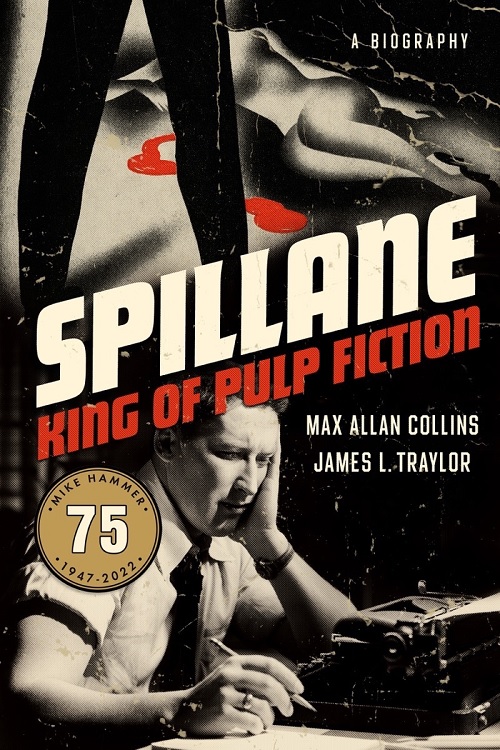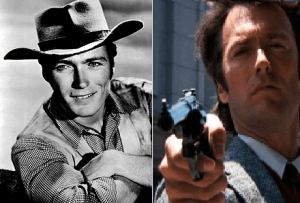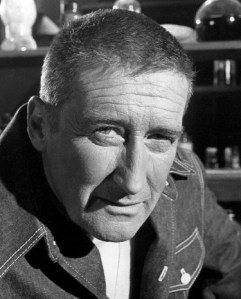
Everybody will get a kick out of this book. Those who are not fans of Mickey Spillane will discover a life story so vigorous and well-lived that most will not only enjoy the read but will convert to Mickey Spillane fandom. And we lucky souls who are already fans will have a fresh appreciation of the artistry, sheer energy, and creativity of one of the best-selling authors of all time.
Max Allan Collins and James Traylor are mystery writers who’ve collaborated on previous books about Spillane. They wrote this biography in an easy-going, conversational style that perfectly suits their subject.
Why do they call Spillane the King of Pulp Fiction rather than the King of Crime Fiction? Because crime fiction is just one genre in the rowdy pulp universe, and Spillane left his fingerprints all over the cultural landscape.
An athletic young man who read voraciously, Mickey Spillane got his start writing comic books, and worked with many of the greats, including Stan Lee and Bill Everett. He penned storylines for Sub-Mariner, Captain America, and the Human Torch, just to name a few. Working with comics trained him to work fast, and that meant no holds barred on the imagination. Spillane later claimed his years writing comic books were the happiest years of his life. They certainly influenced his visual and physical writing style.
He foresaw that the soldiers and sailors returning home from WWII would appreciate action-packed, affordable books. After all, the 122 million Armed Forces Edition books distributed throughout the war had sharpened the appetite of the most literate generation America had ever seen. But Spillane also grasped that these veterans wanted more than entertainment. They had fought and bled to defend a country now plagued by widespread social disruption. Corruption, crime, and graft angered them, and many felt powerless and betrayed. Spillane intuited that these frustrated veterans yearned for quick, stern justice.
And so Mike Hammer was born.
I, The Jury, Spillane’s first novel, was a success, but some critics dismissed it as lurid, primitive, even vulgar. Others condemned both the writing and the writer. One critic denounced Spillane for authoring “a glorification of force, cruelty, and extra-legal methods that might be required reading in a Gestapo training school.” Botched attempts at putting Mike Hammer on the screen also bedeviled him.
But he kept on writing, running into some setbacks, but also much success. Success brought money and fame, which allowed him to live a life of adventure, including acting, boating, piloting planes, performing in the circus, roaming the backwoods with revenooers searching for illegal moonshine, and stock car racing. I couldn’t help but think of Yukio Mishima, another author who also lived a life of action.
The character of Mickey Spillane – as vivid and fascinating as any fictional character – was deeper and sharper than his critics realized. He’d trained fighter pilots during the war. Years later, when director William Wellman was stuck while re-editing a movie, Spillane suggested reversing two shots. Wellman considered the idea a moment before admitting, “Doggone it, he’s right.”
Writers will find some useful gems here. Spillane’s dedication to his craft belied his cavalier remarks about his work, such as the infamous, “Those big-shot writers could never dig the fact that there are more salted peanuts consumed than caviar.” In fact, Mickey Spillane cared deeply about writing, and kept honing his skill his entire life. Not to be missed is the short section “Mickey Spillane on Writing.” My favorite pointer: “When you’re writing a story, think of it like a joke. What’s a great punch line? Get the great ending then write up to it.”
Thank you, Mickey.


